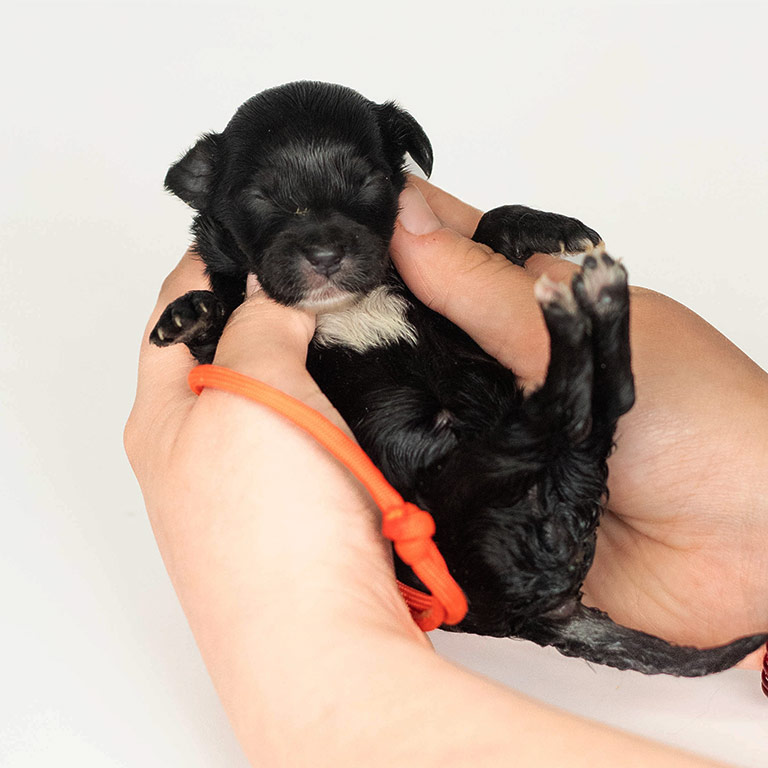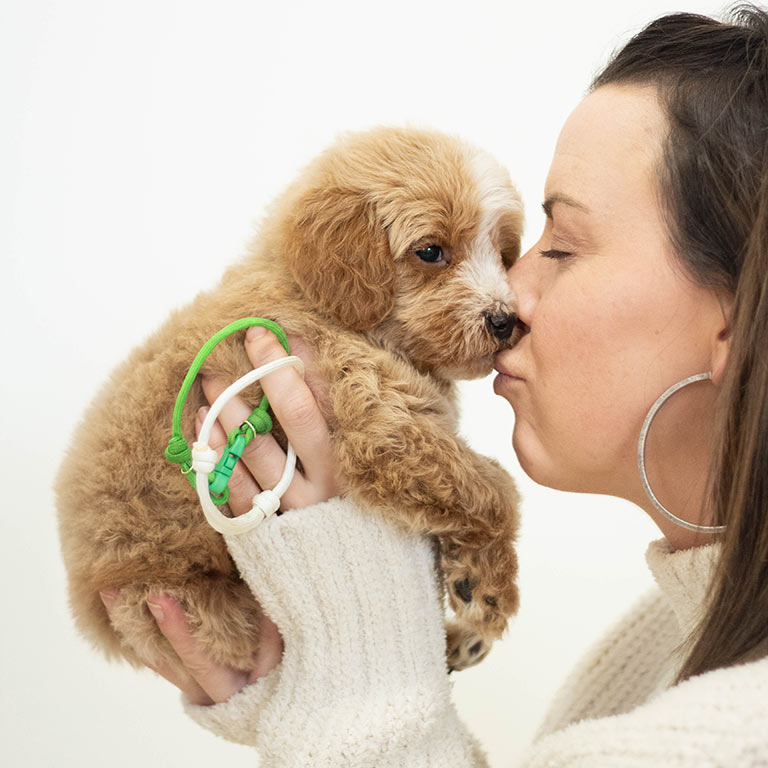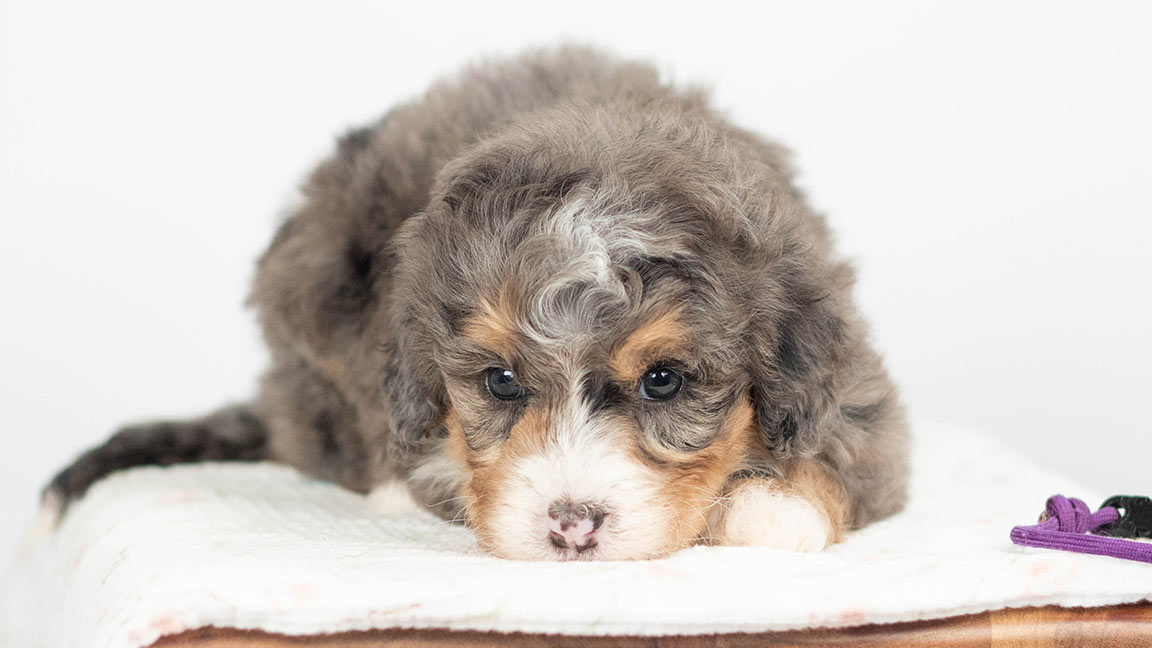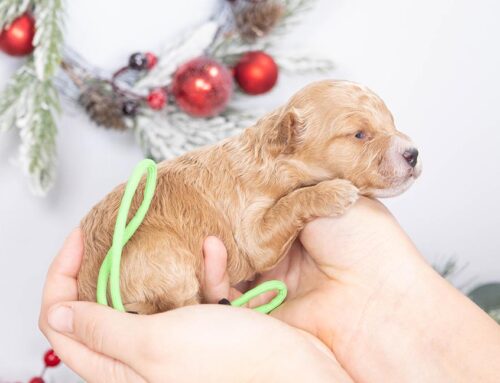What to Expect in the First 72 Hours After Bringing Your Puppy Home
What to Expect in the First 72 Hours After Bringing Your Puppy Home
Few moments are as exciting as the day you bring home your new puppy. Whether you’re welcoming a Bernedoodle, Sheepadoodle, or one of our Mini Doodle pups, the first 72 hours are the most important part of your journey together. This short period sets the foundation for bonding, trust, and good habits that will last a lifetime.
At Double U Doodles, we prepare each puppy for this transition through careful early socialization and a structured environment. Still, it’s normal for your puppy to need a little time to adjust. Here’s what you can expect during those crucial first three days and how to make the experience as smooth and positive as possible.
Day 1: The First Night Home
Your puppy’s first day and night will be filled with new sights, smells, and sounds. Everything feels unfamiliar, from the car ride home to the flooring, lighting, and routine. It’s common for your puppy to feel a little anxious or overwhelmed at first.

Helping Your Puppy Settle In
- Keep things calm. Avoid overwhelming your puppy with too many visitors or noises.
- Show them their space. Introduce their crate or bed, water bowl, and designated potty area right away.
- Expect some crying. Whining at night is normal for the first few days as your puppy adjusts to sleeping alone. You can soothe them with gentle words or a soft toy that carries your scent.
- Keep the first night simple. A consistent bedtime routine will help your puppy understand what to expect and when it’s time to rest.
At Double U Doodles, our puppies begin crate training early, so most adapt quickly to their new homes. Still, patience and reassurance go a long way.
Day 2: Building Trust and Routine
By the second day, your puppy will start to recognize you as its new family. They’re still exploring their surroundings, but will begin to relax as the environment becomes more familiar.
Establishing a Routine
Dogs thrive on structure. Create a consistent schedule for meals, potty breaks, naps, and playtime. This helps your puppy understand what happens when, reducing stress and speeding up the house-training process.
You can expect your puppy to nap frequently, play in short bursts, and follow you around as they begin to bond. Encourage gentle exploration and reward positive behaviors with praise or small training treats.
Introducing the Leash and Crate
If your puppy is comfortable, begin short, positive sessions with a leash indoors and brief crate periods during the day. Keep sessions short and upbeat. The goal is to associate these new experiences with safety and comfort, not fear.
Feeding and Digestion
Stick with the same food your breeder provided for at least a week to avoid upsetting your puppy’s stomach. Sudden diet changes can cause digestive issues, so transitions should be gradual. Ensure that fresh water is always available and that meals are served at the same time each day.
Day 3: Confidence and Connection
By the third day, your puppy begins to feel at home. You’ll notice more curiosity, playfulness, and affection as they start to settle into your rhythm. This is when trust deepens and your puppy begins forming a real attachment to you.

Expect Some Testing
Puppies are smart, and now that they’re comfortable, they might start testing boundaries. Gentle correction and consistent reinforcement are key. Reward good behavior and calmly redirect unwanted behavior. Never yell or punish; instead, use positive reinforcement to build a confident and trusting dog.
Bonding Time
Spend time playing, cuddling, and speaking to your puppy in a calm voice. Eye contact and gentle touch strengthen your connection. At Double U Doodles, we often remind families that emotional bonding is as important as training during this period. A puppy who feels safe learns faster and grows into a well-adjusted adult.
Common Behaviors in the First 72 Hours
- Whining or crying at night – A natural response to being separated from littermates. Consistency and reassurance will help.
- Accidents in the house – Normal during the adjustment phase. Frequent potty breaks and positive reinforcement will fix this quickly.
- Shyness or hesitation – Give your puppy space to observe and approach at their own pace.
- Exhaustion – Puppies sleep up to 18 hours a day. Let them rest often.
Remember, every puppy’s adjustment timeline is unique. Some settle in within a day, while others may take a week to feel truly confident.

Setting Up Your Home for Success
A well-prepared home makes all the difference. Create a safe, quiet area where your puppy can retreat when they’re tired or overstimulated. Puppy-proof your space by removing cords, choking hazards, and any items you don’t want your puppy to chew.
Keep a few essential supplies ready:
- Crate or pen
- Comfortable bedding
- Food and water bowls
- Puppy food and small treats
- Toys for chewing and play
- Enzyme cleaner for accidents
Supporting Emotional Adjustment
Puppies go through big emotional shifts in their first few days home. They’re learning who you are, what their new home feels like, and what’s expected of them. Your calm presence will help them feel secure.
If your puppy cries, resist the urge to over-comfort immediately. Instead, wait for a brief pause in the whining, then praise or offer attention. This teaches your puppy that calm behavior brings rewards.
Health and Vet Care
Schedule your first veterinary appointment within the first few days after arrival. Bring vaccination records from your breeder and discuss a vaccination and deworming schedule with your vet. This visit also gives you a chance to ask about diet, supplements, and flea or heartworm prevention.
The Double U Doodles Difference
At Double U Doodles, we understand that the first 72 hours at home can be a mix of excitement and nerves. That’s why we prepare our puppies through structured early socialization and our Checkpoint Puppy Program. By the time they leave us, they already understand basic routines and have begun crate exposure, early potty training, and gentle handling.
Our goal is to provide each family with a confident, well-prepared puppy and the necessary tools to ensure a smooth transition into their forever home. With patience, consistency, and love, the first 72 hours will set the stage for a lifetime of companionship and trust.

FAQ
How long does it take a puppy to adjust to a new home?
Most puppies begin to feel comfortable within three to five days, though some may take up to a week depending on their personality and environment.
Should I let my puppy sleep in my room the first night?
Yes, many breeders and trainers recommend keeping your puppy nearby during the first few nights to ease anxiety. Gradually move the crate to its permanent location once they’re settled.
When should I start training my puppy?
Basic training begins immediately with small steps, including name recognition, potty routines, and gentle commands. Positive reinforcement from day one sets good habits.
What if my puppy doesn’t eat the first day?
It’s normal for some puppies to skip a meal due to stress. If they’re still reluctant to eat after 24 hours, consult your vet for advice.





